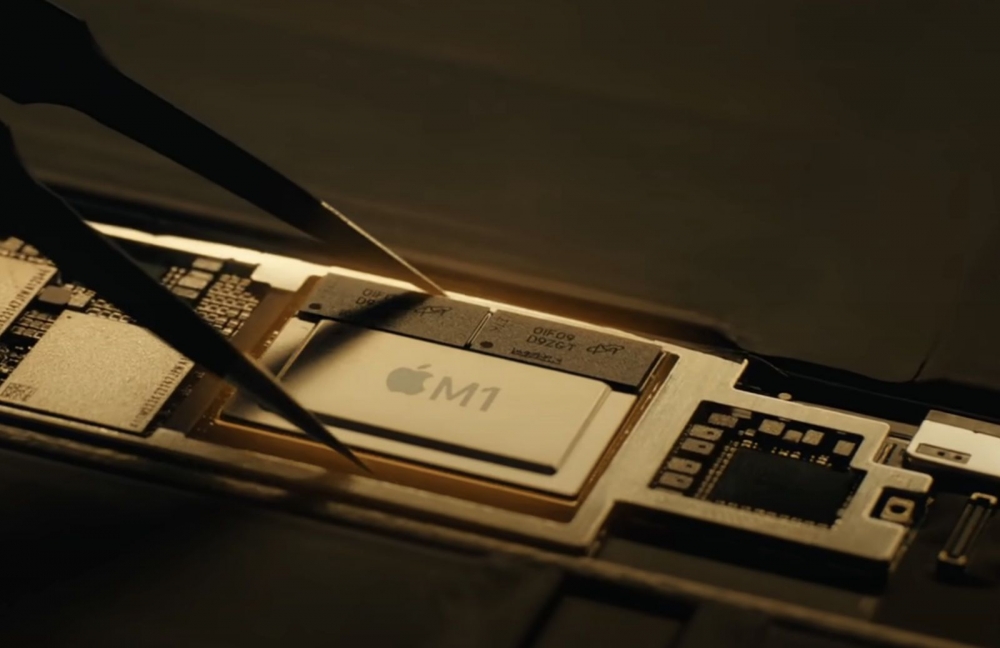Early benchmark results of the M1 iPad Pros are here
- According to new reports, Apple's 2021 iPad Pros are 56% faster than their predecessors.
- Benchmark results show that these iPad Pros have virtually identical performance to the recently announced M1 Macs.
- The graphic performance scores show that the M1 iPad Pros are 71% faster than their predecessors.
After the introduction of the next-gen iPad Pro last month, early benchmark results of this device are finally out — giving us a hint of what to expect from these iPad Pros.
 These new iPad Pros seemed to be the show-stealing products of the Apple Event, all thanks to the mighty M1 chip in the iPad Pro — Apple’s most powerful chipset yet. No, it’s not a joke — it’s the same M1 chip that made its debut in December 2020. The chipset was announced alongside the new MacBook Air, Mac Mini and the 13-inch MacBook Pro. The M1, to the surprise of everyone, stood up as a top-notch processor — blowing away many market-leading PCs and laptops. At its announcement, the chip startled consumers and reviewers across the globe, attracting a huge number of positive reviews.
These new iPad Pros seemed to be the show-stealing products of the Apple Event, all thanks to the mighty M1 chip in the iPad Pro — Apple’s most powerful chipset yet. No, it’s not a joke — it’s the same M1 chip that made its debut in December 2020. The chipset was announced alongside the new MacBook Air, Mac Mini and the 13-inch MacBook Pro. The M1, to the surprise of everyone, stood up as a top-notch processor — blowing away many market-leading PCs and laptops. At its announcement, the chip startled consumers and reviewers across the globe, attracting a huge number of positive reviews.
 The benchmark results of those initial Macs were already out within days of its debut. However, things got jaw-dropping when Apple just decided to house their new iPad Pro line-up with the same M1 (since it’s built on the same foundation as the A-series chip). While shipment of the M1 iPad Pro is yet to begin, the early benchmark results can give a taste of their performance for anyone that is curious.
The benchmark results of those initial Macs were already out within days of its debut. However, things got jaw-dropping when Apple just decided to house their new iPad Pro line-up with the same M1 (since it’s built on the same foundation as the A-series chip). While shipment of the M1 iPad Pro is yet to begin, the early benchmark results can give a taste of their performance for anyone that is curious.
As first spotted by MacRumors (reliability: 57.14%), the early Geekbench 5 results for the 12.9-inch (5th-generation) iPad Pro comprised of five legitimate benchmark test results. Based on these results, the device was seen to achieve an average single-core score of 1,718 and an average multi-core scores of 7,284. These scores were seen substantiating Apple’s claims of these newer iPad Pros — up to 50% faster than its predecessors. For reference, the 12.9-inch (4th-generation) iPad Pro housing the A12Z Bionic has an average single-core score of 1,121 and an average multi-core score of 4,656 — making it roughly 56% faster.
- 13” M1 MacBook Pro: 7,691
- M1 MacBook Air: 7,378
- M1 Mac mini: 7,346
- M1 iPad Pro: 7,284
- Core i9 16" MacBook Pro: 6,845
- A12X iPad Pro: 4,809
- A12Z iPad Pro: 4,656
- iPad Air(4th-gen): 4,214

It’s worth noting from the above results that the 12.9-inch (3rd-generation) iPad Pro with the A12X chip has a slightly higher multi-core score than the 2020 iPad Pro. Yet, this still makes the M1 iPad Pro up to 51% faster.
These benchmark results highlight that the M1 iPad Pro has virtually identical performance as the first M1 Macs released back in December, 2020 — for example, the MacBook Air, which has average single-core and multi-core scores of 1,701 and 7,378, respectively. Interestingly, this M1 iPad Pro topples over the maxed-out 16-inch MacBook Pro with an Intel Core i9 processor. This means that the M1 iPad Pro is faster than this 16-inch MacBook Pro which has an average single-core and multi-core scores of 1,701 and 7,378, respectively.
Regarding the graphics performance, the M1 iPad Pro has an average metal score of 20,578. This graphics performance is up to 71% faster than the 2020 iPad Pro with the A12Z chip and about the same as that of the M1 Macs.
Pre-orders for the M1 iPad Pro began on 30th April and the product is expected to start shipping to customers around 21 May.
Recommended by the editors:
Thank you for visiting Apple Scoop! As a dedicated independent news organization, we strive to deliver the latest updates and in-depth journalism on everything Apple. Have insights or thoughts to share? Drop a comment below—our team actively engages with and responds to our community. Return to the home page.Published to Apple Scoop on 12th May, 2021.
No password required
A confirmation request will be delivered to the email address you provide. Once confirmed, your comment will be published. It's as simple as two clicks.
Your email address will not be published publicly. Additionally, we will not send you marketing emails unless you opt-in.